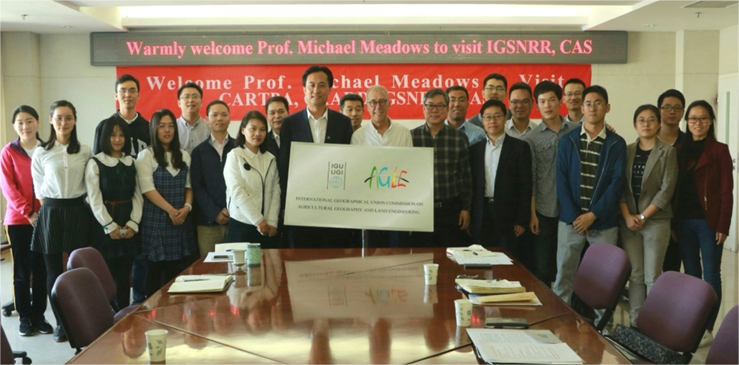

The Commission on Agricultural Geography and Land Engineering of the International Geographical Union (IGU-AGLE) was officially established on December 29, 2016. Professor Yansui Liu, a distinguished researcher at the Institute of Geographic Sciences and Natural Resources Research, Chinese Academy of Sciences, assumed the position of inaugural Chair. Eminent scholars from the United States, the United Kingdom, France, Australia, Sweden, Thailand, Pakistan, and other nations served as deputy chairs and commission members.
The IGU-AGLE aims to contribute to both the theories and practices of agricultural development in the following aspects: (1) To construct a technological system of land engineering in settling the bottlenecks of the transition of the world’s agriculture. In this process, land engineering can comprehensively integrate water, soil, air and ecology to serve the agriculture of different areal types;(2) To establish research and experimental sites of modern agriculture in different countries. In this process, land engineering can extend technologies and modes of consolidating desert areas, degraded land and deteriorated land to different countries. This helps to improve land quality and explore land resources for agricultural development;(3) To create a platform for academic communication and exchanges, joint experiments and collaborations as well as training which aim to serve governments’ policy making.
IGU-AGLE has become the first professional committee among the 39 committees of the International Geographical Union (IGU) to be initiated and led solely by scholars from mainland China. The IGU is an academic organization formed by geographical academic societies from around the world, officially established in Brussels in 1922. China joined the IGU in April 1949 and resumed its membership at the 25th International Geographical Congress held in Paris in 1984.The IGU-AGLE will operate in accordance with the objectives of the Union. It seeks to bring together scholars from both domestic and international backgrounds to conduct in-depth project research and experimentation, host professional academic conferences, and organize scientific expeditions. The committee aims to systematically advance technological innovation in land engineering and the transformation of modern agriculture, as well as comprehensive studies on rural sustainability and agricultural case studies. By fostering innovative technologies, providing development support, and facilitating decision-making, the committee aims to make substantial contributions to the field.Furthermore, it will enhance communication and collaboration with other specialized committees focusing on land degradation, desertification, land use, and land cover changes. It will actively participate in various forms of international cooperation and explore innovative research and practical applications within the field of geography on a global scale.